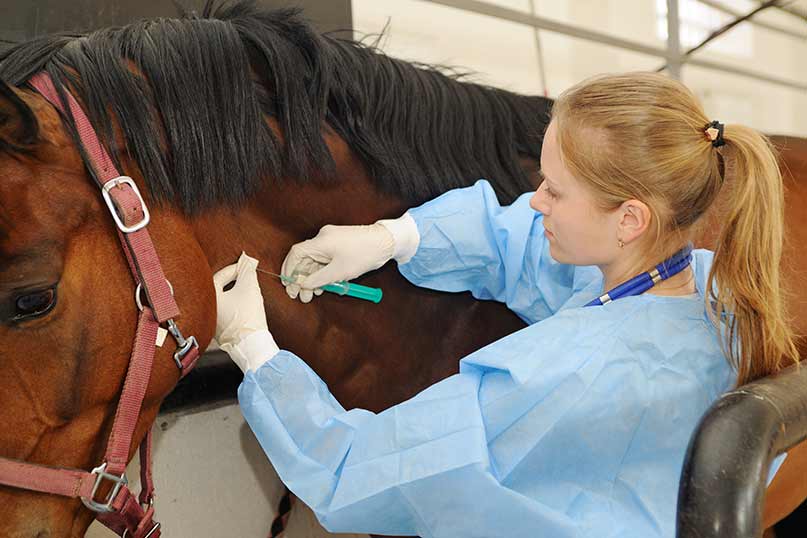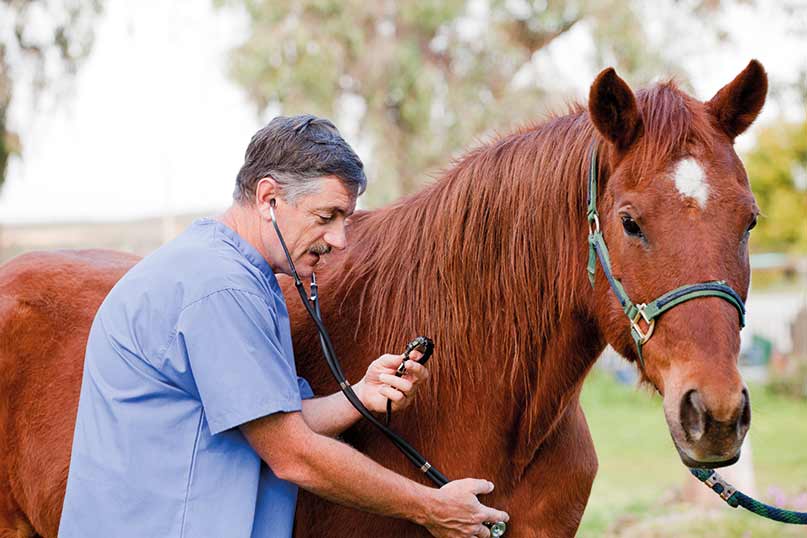
Many equine vaccinations are standard and will be administered for all horses, although there are a range of vaccinations that will only be prescribed if there is a significant risk to the horse due to a possible outbreak.
When it comes to disease prevention, knowledge is key. Pandemic diseases are an infectious disease that has spread through populations across a large region; for instance multiple continents, or even worldwide. This can be spread from horse to horse or via a vector such as a mosquito. However, many horse related diseases can be vaccinated against and therefore save the horses life or prevent serious illnesses.
Tetanus
The spores of this bacteria are normally found in the soil and can produce a neurotoxin that spreads to deep wounds or recently healed cuts. Tetanus can develop quickly and will often leave the horse with a protrusion of the third eyelid; stiff neck; full body muscle stiffness; or in some cases prove fatal. Vaccinations should be done yearly as even the smallest cuts can lead to a fatal outcome.
Equine Influenza
Equine influenza is a viral disease that is spread through drops of infective material that is then inhaled by the horse. If your horse is struck by equine influenza they may suffer dry coughing, a sudden fever, watery nasal discharge, weakness, loss of appetite and depression. It is rarely fatal but horses will still suffer a number of illnesses related to the disease which could in turn prove fatal.

Strangles
This is a highly infectious disease that is introduced to a horse via a carrier animal. Strangles causes an upper respiratory tract infection and the formation of abscesses around the throat area. A simple combatant to this disease is a yearly vaccination that is nothing compared to the amount of money you may be spending if your horse becomes ill.
Hendra Virus
The Hendra Virus is a virus found in bats that due to stress will overflow in to other animals such as horses. This is a fast moving virus that can cause death in a short period of time. The horse will suffer respiratory problems, colic, and some neurological symptoms. A vaccination administered by a veterinarian and will be done in 6 month intervals. It is highly recommended for horses that may come in contact with fruit bats or other horses that have exposure to fruit bats.
Equine Herpes
There are many types of equine herpes, with each affecting different areas of the horse. The more common EHV1 and 4 affect the respiratory system and in some cases the reproductive system. Neurological herpes is less common but can cause weakness to the hind limbs, affect the bladder and cause paralysis. Neurological herpes is harder to fight, however a vaccination is available and is strongly recommended in pregnant mares and horses being sent to facilities where there are multiple horses. The vaccine will reduce the spread of the disease.
Vaccinations should be implemented before your horse starts showing symptoms. Talk to your vet about appropriate vaccinations that you will need to get as it may differ due to the area that you live in, meaning that your horse may be more susceptible to some diseases than others.


